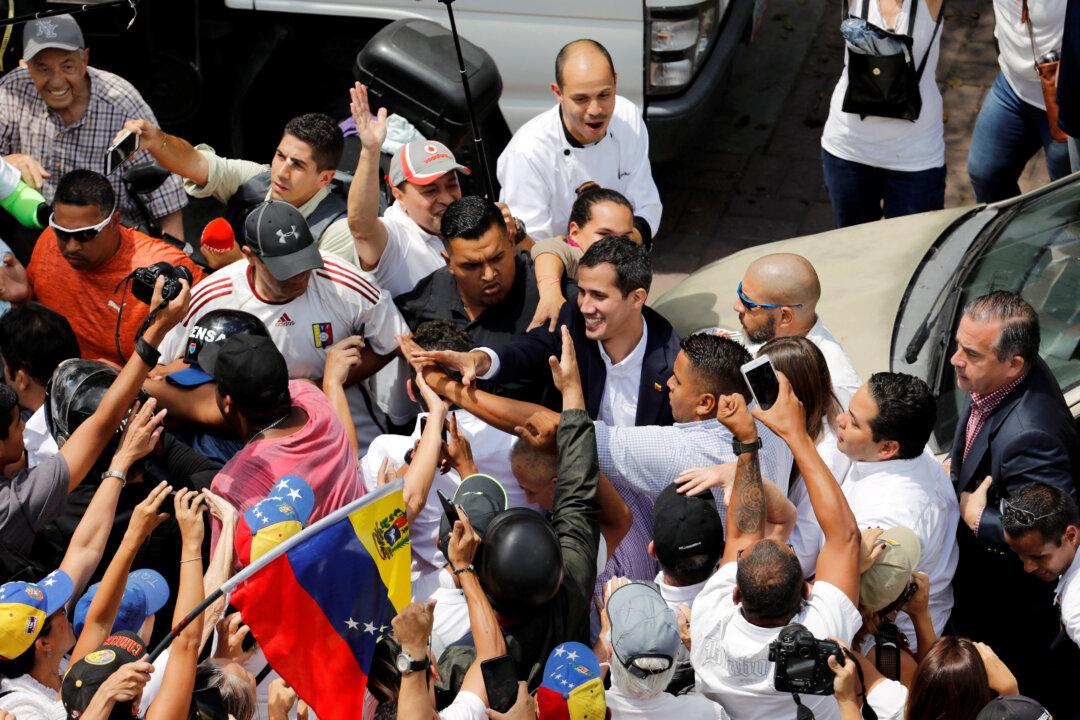Venezuelan interim president Juan Guaidó cleared customs and returned to his country on March 4, in defiance of the threat of arrest by the regime of illegitimate socialist dictator Nicolas Maduro.
“Already in our beloved land! Venezuela, we have just passed migration and we will mobilize where our people are!” Guaidó wrote in Spanish on Twitter. “We enter Venezuela as free citizens, no one tells us otherwise.”





